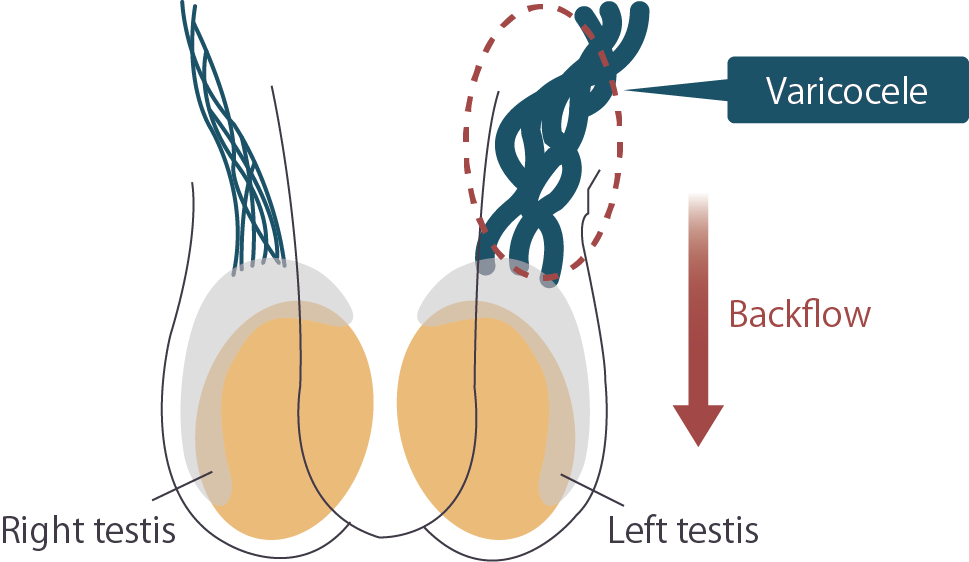Approximately 90% of male infertility cases have unknown causes.
Although the medical evidence is not high, oral medications are used as an adjunct to improve sperm condition as much as possible, but it is recommended that they be used in combination with radical or symptomatic treatment.
Medications used include Kampo preparations, vitamins, and hormones.
Drug treatment
At this stage, there is no clearly confirmed treatment for oligozoospermia or spermatasthenia, which are abnormalities of sperm.
However, some patients with moderate abnormalities (about half of the reference value) have improved semen findings after taking oral medications.
At our hospital, we basically prescribe Kampo preparations, and other nutritional supplements are purchased at the pharmacy.
Oligospermia: Hachimijiogan, VitaminB12(1500~3000μg/day) etc.
Spermatorrhea: Hochuekkito, kallikrein(60~600units/day) etc.
In addition, vitamin E, vitamin C, coenzyme Q10, and glutathione are used to suppress active oxygen that damages sperm.
Vitamin B12 and folic acid (foliamine), which are used in DNA synthesis, are also expected to improve sperm concentration.
Other Kampo preparations include Goshajinkigan and Saikokaryukotsuboreito.
In case of varicocele
What is varicocele?
Touching the scrotum reveals the presence of a colicky duct that leads in an upward direction from the testis. This is the "spermatic cord".
The spermatic cord is composed of a bundle of spermatic ducts, blood vessels (arteries and veins), nerves, and lymphatic vessels that are the pathways for sperm.
The blood vessels that return blood from the testicles to the heart are called the spermatic veins.
Because the testicles are lower than the heart, the vas deferens has valves to prevent backflow.
For some reason, these valves stop working, causing blood to flow backwards and become stagnant, resulting in varicose veins.

When a varicocele occurs,
Warm blood stays near the testicles.
Sperm are naturally heat-sensitive and should be kept at about 32-34°C, 2-3°C below body temperature.

Decreased spermatogenesis and decreased sperm quality.
Prolonged high testicular temperatures will deteriorate sperm quality, worsening oligospermia, spermatasthenia, and sperm DNA damage.

Causes infertility.
It is found in about 10-20% of the general male population and is said to account for about 40% of the causes of male infertility.
Symptoms of varicocele
Symptoms of varicocele are generally asymptomatic, and in rare cases, pain or discomfort may occur.
About 80% of cases are found in the left testicle, and an elastic cord-like substance is palpable on the head of the testicle.
If the symptoms become severe enough, the vessels can be seen on visual examination for vascular rage.
Treatment of varicocele
Surgery is not necessary if there are no symptoms such as pain or discomfort, and semen findings are at baseline values.
However, depending on the age of your partner, you may want to consider surgery if there is no urgent need for infertility treatment.
The surgical method involves ligating or cutting the spermatic cord vein to prevent backflow.
Approximately 50% to 70% of patients can expect improvement in semen findings within 3 to 6 months after surgery.
However, recent research has revealed that even in those whose semen findings do not improve, the number of sperm with DNA damage after surgery is reduced.









